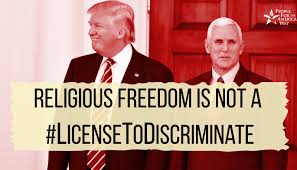

There is a higher education bill currently making its way through Congress that could push through more LGBT discrimination on college campuses say opponents. Buried within the pending legislation is a provision that states that the government cannot intervene to  take away state-sponsored funding or take other actions against a college or university for "policies related to their religion affiliation or mission".
take away state-sponsored funding or take other actions against a college or university for "policies related to their religion affiliation or mission".
In plain English, some would say that this means that a college or university could easily discriminate against students without many strike back from the government at all. They could merely hide behind the idea that such policies are part of their "religious mission" and get away with nearly anything that they wanted to put under that classification.
This is what has LGBT advocates worried. They already see a problem with discrimination against non-straight students on college campuses every day. The government handing over a shield to universities that would like to more openly display their discrimination is a big red flag.
At some Christian colleges, gay or lesbian dating is forbidden. Same-sex couples are also not allowed to live together in married student housing. That is something that could be a cause for the government to step in or take action. However, if this bill is passed, the government would not have the option to do so.
The President of the Oklahoma Wesleyan University says that there is a big different between discriminating against a behavior and  discriminating against a person. Who is trying to make the tired old argument about "disliking the person's sin, not the person themselves". Of course, such remarks are ludicrous and miss the whole point of what being LGBT is. It is an identity and part of a person. It is not like they can simply stop being who they are.
discriminating against a person. Who is trying to make the tired old argument about "disliking the person's sin, not the person themselves". Of course, such remarks are ludicrous and miss the whole point of what being LGBT is. It is an identity and part of a person. It is not like they can simply stop being who they are.
It is difficult to say how this one will turn out. Plenty of legislation that appears before Congress never even makes it out of the committee stage. However, this is an important bill for other reasons, and Congress may feel compelled to pass it in its entirety to preserve the parts of the bill that are in fact good.
Given that the proposed legislation is approximately 590 pages at the moment, there is definitely a lot for the Congress to take a look at. LGBT advocates and members of the community will be watching to see just how this one turns out.

